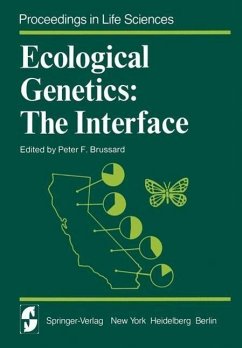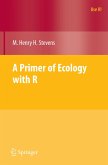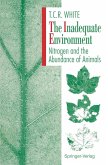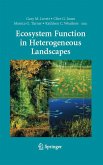Traditionally, studies in ecological genetics have involved both field observations and laboratory genetic analyses. Comparisons and cor relations between these two kinds of data have provided valuable in formation on the genetic strategies behind the evolutionary adapta tions of species and their component local populations. Indeed, much of our current understanding of the dynamics of evolutionary pro cesses has come fro~ syntheses of ecological and genetic information. Since the recent discovery of abundant markers in the form of protein polymorphisms, scientific interest in the connections between genetics and ecology has quickened considerably. This volume contains the proceedings of the Society for the Study of Evolution's symposium, Genetics and Ecology: The Interface, held at Ithaca College, Ithaca, New York, June 12-15, 1977. This particular topic was selected because of a general feeling that a significant integration of genetics and ecology has developed in the last decade or so. Host ecologists no longer believe that each species has a characteristic and constant birth, death, and develonment rate, habitat preference, and so on, but that these para~eters vary a~ong populations and are at least partially under genetic control and sub ject to natural selection. Similarly, few population geneticists still view any species as infinitely large, panmictic, constant in numbers, and distributed evenly throughout its range.
Dieser Download kann aus rechtlichen Gründen nur mit Rechnungsadresse in A, B, BG, CY, CZ, D, DK, EW, E, FIN, F, GR, HR, H, IRL, I, LT, L, LR, M, NL, PL, P, R, S, SLO, SK ausgeliefert werden.









